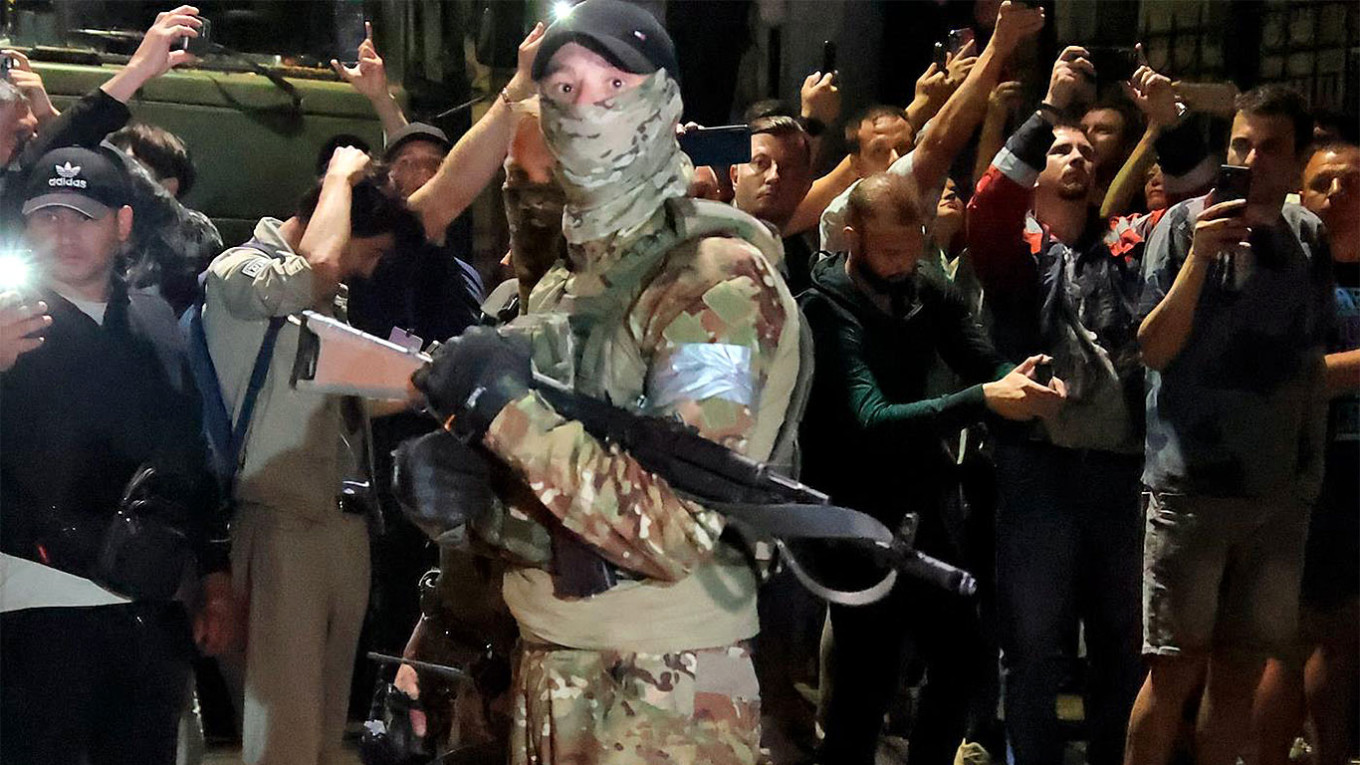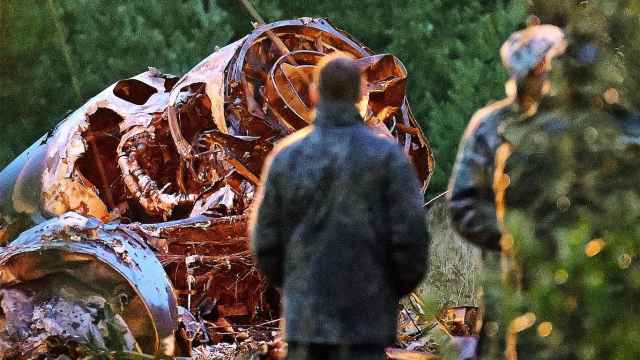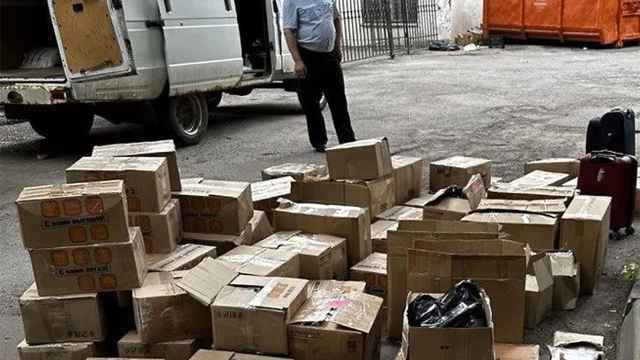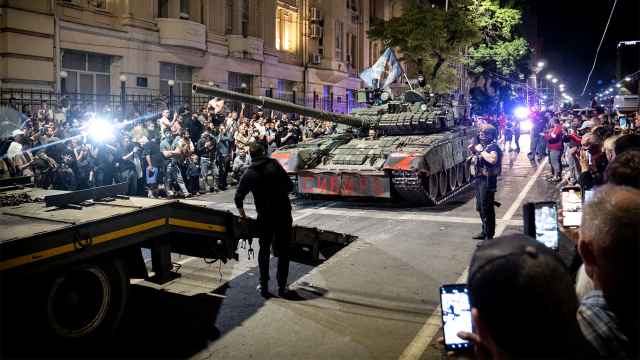A month after Wagner mercenary boss Yevgeny Prigozhin’s short-lived uprising, it’s clear that the fallout has been quite different to what many expected. Wagner has not been radically restructured, Prigozhin has not been murdered or jailed, and there has been no purge of Wagner sympathizers in the army, nor any major moves against the country’s “ultra-patriots” (apart from the arrest of the former Donbas separatist commander Igor Girkin).
Russia has more or less resumed “normal” life. Still, it’s hard to shake the feeling that the regime will never be the same again. Prigozhin’s insurrection has changed how the Russian elites see the world, and will color the country’s political trajectory for years to come.
When asked after the event why he decided to seize a military headquarters in Rostov-on-Don and send a column of troops toward Moscow, Prigozhin reportedly said: “I had a meltdown.” That seems plausible. Wagner’s highly controversial practice of recruiting new soldiers from Russia’s prisons had been stopped back in January, and the private army was allegedly being starved of ammunition, while Prigozhin’s communication channels with Putin had been cut off. It seems the last straw was the demand for Wagner fighters to sign a contract with the Defense Ministry.
The insurrection itself unfolded with dizzying speed: Wagner’s deployment; Putin’s angry reaction; Prigozhin’s panic at finding himself on the brink of seizing Moscow; the deal brokered by Belarusian President Alexander Lukashenko; and Wagner’s decision to stand down. The final act was a June 29 meeting with Putin at which Wagner commanders were apparently obliged to apologize and agree to relocate to Belarus.
Looking back, it all appears to have been a misunderstanding. On the one hand, Putin failed to understand how radicalized Prigozhin had become and allowed the conflict to escalate with deadly consequences. On the other, Prigozhin overestimated his own importance, mistakenly believing he could strongarm Putin into reshuffling the military leadership and saving Wagner from irrelevance.
At least on the surface, it all seems now to have been resolved. Prigozhin understands that his attempt to use force was a mistake, and Putin has decided Prigozhin was just a patriot who momentarily forgot himself amid the horrors of war, rather than a dangerous traitor.
Nevertheless, Prigozhin lost assets in the wake of the rebellion (his media empire, part of his business, and—most importantly—his reputation as a war hero) and has been exiled to Belarus. And the Kremlin appears to be trying to break up Wagner. Its commanders are being pushed to serve under a new leader, Alexei Troshev, who has apparently signed a contract with the Defense Ministry and, according to Putin, been designated as a successor to Prigozhin.
How several thousand Wagner soldiers will occupy themselves in Belarus is a dilemma for Putin and a headache for Lukashenko. But the Kremlin appears to have decided that the former mutineers cannot stay in Russia.
Even before the dust has fully settled, it’s clear that Prigozhin’s mutiny was nothing less than the most significant domestic political event in Russia since Putin came to power nearly a quarter of a century ago. The main beneficiary, many people rightly believe, was the Defense Ministry. Indeed, it handed Defense Minister Sergei Shoigu an opportunity to investigate Prigozhin’s allies inside the Armed Forces (most notably General Sergei Surovikin, who was the main intermediary between the Defense Ministry and Wagner).
Yet the mutiny also damaged the reputation of Russia’s military leaders and helped bring to the surface unhappiness that has accumulated further down the ranks. After a disagreement earlier this month with Chief of the General Staff Valery Gerasimov, Major General Ivan Popov, the widely respected commander of Russia’s 58th Combined Arms Army, was removed from his post and sent to serve in Syria. Russian Telegram channels are also rife with rumors about the removal of Major General Vladimir Seliverstov, leader of the 106th Airborne Division, and Colonel General Mikhail Teplitsky, commander of Russia’s Airborne Forces.
These changes look more like the result of damage to Gerasimov and Shoigu’s authority than a purge of Prigozhin allies. It’s possible that with time, Putin will need to replace the two men.
There was speculation that the position of Viktor Zolotov, the head of Rosgvardiya, Russia’s National Guard, would be stronger in the wake of the mutiny. It’s true that following the uprising, the Russian parliament passed a law allowing Rosgvardiya to acquire heavy military equipment, and it was also announced that an anti-narcotics special forces unit would be subsumed into Rosgvardiya.
But that does not amount to major new authority for Zolotov. To buy heavy military equipment you need a budget and, even if the money is forthcoming, the state will prioritize the needs of the Armed Forces in Ukraine. And there have also been some reversals for Zolotov, such as the passage of legislation earlier this month allowing governors to create their own military units.
Although many thought the Kremlin would seek to reclaim a monopoly on violence after the uprising, it looks like the opposite is taking place, and indeed it could be said that a “fragmentation” of Russia’s security services is underway. Growing fissures in the country’s security architecture will create new conflicts and intensify inter-agency competition, with all their destabilizing consequences.
The true beneficiaries of the mutiny were in fact Russia’s spy agencies. The Federal Security Service (FSB) was at last able to arrest Girkin, one of the most radical “ultra-patriots.” While in the West, he has been sentenced (in absentia) to life imprisonment for his part in the downing of Flight MH17 over eastern Ukraine back in 2014, in which 298 people were killed, in Russia he stands accused of extremism, having criticized Putin over the way the campaign in Ukraine is being fought.
Meanwhile, the Foreign Intelligence Service (SVR) has been able to advance its old idea about the “Polish threat” (Poland’s supposed desire to occupy western Ukraine and Belarus). Putin recently held forth about Poland’s insidious intentions at a Security Council gathering and in a meeting with Lukashenko.
Whatever the talk about Poland, it seems unlikely that Wagner will be involved in any sort of armed incursion into northern Ukraine or near the Polish border. Nor is a major crackdown against the “ultra-patriots” on the cards. The Kremlin still sees them as a key part of the pro-war consensus, which it wants to nurture ahead of presidential elections in 2024.
The person who suffered the most as a result of the mutiny was Putin himself. However confident he may feel in the aftermath, he messed up. He created a monster that escaped from his control and spooked the elites. Everyone saw that the Kremlin was paralyzed with indecision, and that Prigozhin escaped any real punishment. Many are currently wondering whether Putin is the leader Russia needs in difficult times.
Putin’s much-hyped “power vertical” has disappeared. Instead of a strong hand, there are dozens of mini-Prigozhins, and while they may be more predictable than the Wagner leader, they are no less dangerous. All of them know full well that a post-Putin Russia is already here — even as Putin remains in charge — and that it’s time to take up arms and prepare for a battle for power.
This article was originally published by The Carnegie Endowment for International Peace.
A Message from The Moscow Times:
Dear readers,
We are facing unprecedented challenges. Russia's Prosecutor General's Office has designated The Moscow Times as an "undesirable" organization, criminalizing our work and putting our staff at risk of prosecution. This follows our earlier unjust labeling as a "foreign agent."
These actions are direct attempts to silence independent journalism in Russia. The authorities claim our work "discredits the decisions of the Russian leadership." We see things differently: we strive to provide accurate, unbiased reporting on Russia.
We, the journalists of The Moscow Times, refuse to be silenced. But to continue our work, we need your help.
Your support, no matter how small, makes a world of difference. If you can, please support us monthly starting from just $2. It's quick to set up, and every contribution makes a significant impact.
By supporting The Moscow Times, you're defending open, independent journalism in the face of repression. Thank you for standing with us.
Remind me later.








